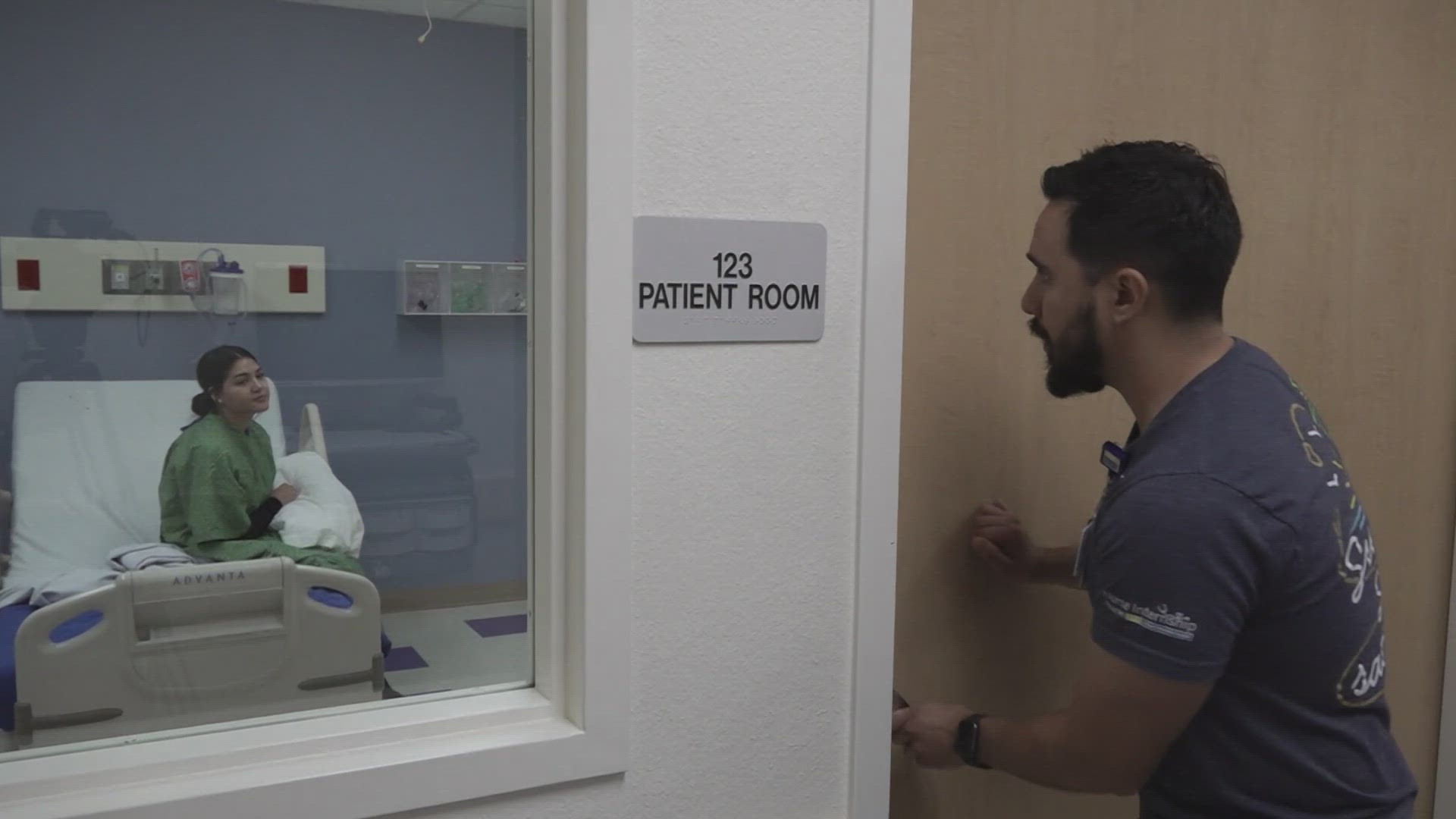MIDLAND, Texas — It's unfortunate, but violence in the workplace is on the rise.
This includes hospitals, where sometimes nurses and doctors can encounter hostile patients.
That's why Midland Health decided to give them some training on how to handle it.
"This is our Lead event," Kit Bredimus, chief nursing officer of Midland Health, said. "This is what we as Midland Memorial Hospital are doing to help promote the knowledge and information around workplace violence prevention. In health care, we've seen lots of incidents of workplace violence, it's on the rise nationally, and we here locally are working towards really creating a safe environment for our staff. And it starts with education and that conversation with our staff about what we can do to make the workplace safer and what we can do to help create that awareness around workplace violence."
Workplace violence is something that happens not just in hospitals but every workplace.
Nurses or healthcare professionals don't plan when they're faced with a hostile patient.
But they can at least prepare.
As for the rest of us? It’s something we can all help stop.
"First you have to start talking about it and bring awareness to the issues," Chief Executive Officer of Texas Nurses Association Serena Bumpus said. "And this is exactly what Midland Health has started to do to begin raising awareness of the issues that they face in their community and within their organization. And as a result, they have been able to train their staff through de-escalation training, bring awareness to their police department to engage them in assisting when incidents start to get out of control and encouraging and empowering staff to report these incidents as they do occur. So they can start to really break down the issues and put prevention measures in place."
The event is a collaboration between Midland Health, Texas Nurse Association and the stars of the show: some Midland College students.
"So the students here from Midland College have been our actors in helping provide simulation in real scenarios that happened inside our facilities," Bumpus said.
One of the award-winning actors-- I mean nursing students-- was Associate Degree Nursing Student Kobie McCalister.
"So it was a bit awkward, but we did get to act as patients which is usually, we're on the other side," McCalister said. "So I got to act as patients with different scenarios whether we were sad, angry or even hostile. So we got to have a lot of administration come through and determine what they needed to do in that situation."
One class that McCalister didn’t think he was taking, was an acting class.
"It was good. It was a little weird having a bunch of people come into my room and then just having to snap into an actor position," McCalister said. "But I think everybody picked up my role or just determined what they needed to do correctly based on how I acted. So it was fun. It was different."
And possibly, his role of a lifetime?
"So I was a crier," McCalister said. "I was designated as a crier and the patient that was very upset, was hungry, tired and in a lot of pain. So my needs are needed to be met. And that's what most people determined they needed to meet my needs because they weren't being met in the moment."
So while these scenarios weren’t exactly real, it simulated important situations that these nurses might have to deal with one day.
While also giving the future nurses an experience that exceeds the classroom desks.
"It's completely different answering a multiple-choice question," McCalister said. "You may know that's the answer. But when you're presented that situation, having to do it in that moment, you don't have a test sheet. It's a lot different. So you need that experience."
That experience that will ultimately help them become prepared nurses.
And while we would love to see these students on our big screens one day, lessons like these will definitely help them reach that goal.
Whether that means taking care of their future patients, or even you.
With A-list acting being a good backup plan.

